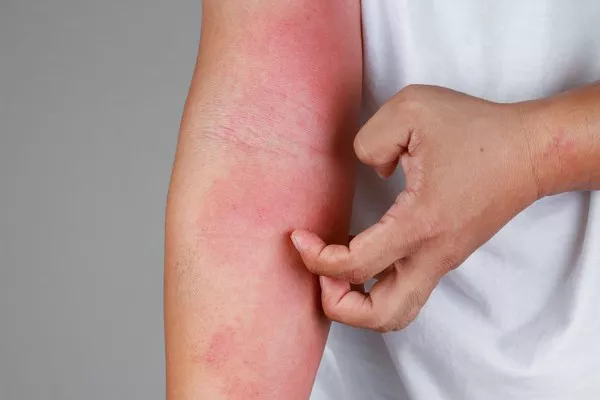Vitiligo is a chronic skin condition characterized by the loss of pigment in patches of skin, resulting in irregular white patches. While vitiligo can affect people of all ages, races, and genders, universal vitiligo represents its most extensive form. This article explores the nature of universal vitiligo, its causes, symptoms, diagnosis, treatment options, and the psychosocial impact on individuals affected by this condition.
Understanding Vitiligo
Vitiligo is a disorder where melanocytes, the cells responsible for producing melanin (the pigment that gives skin its color), are destroyed. This results in depigmented patches on the skin, which can vary in size and location. Vitiligo patches can appear anywhere on the body, including the face, hands, arms, feet, and genital areas.
Types of Vitiligo
Vitiligo is categorized into several types based on the extent and distribution of depigmented patches:
1. Localized Vitiligo: This type involves a few scattered patches on specific parts of the body.
2. Generalized Vitiligo: More extensive than localized vitiligo, generalized vitiligo involves depigmented patches on multiple areas of the body.
3. Segmental Vitiligo: Segmental vitiligo tends to affect one side or segment of the body and progresses for a limited time period.
4. Universal Vitiligo: Universal vitiligo is the most severe form, characterized by extensive depigmentation covering most or all of the body’s surface.
Causes of Universal Vitiligo
The exact cause of vitiligo, including universal vitiligo, remains unclear. However, several factors are believed to contribute to its development:
1. Autoimmune Factors: Many researchers believe that vitiligo may be an autoimmune condition where the body’s immune system mistakenly attacks and destroys melanocytes.
2. Genetic Predisposition: Family history of vitiligo increases the likelihood of developing the condition, suggesting a genetic component.
3. Neurochemical Factors: Some studies suggest that neurochemicals released from nerve endings in the skin may cause damage to melanocytes.
4. Environmental Triggers: Environmental factors such as sunburn, exposure to chemicals, or emotional stress may trigger or exacerbate vitiligo in susceptible individuals.
Symptoms of Universal Vitiligo
Universal vitiligo is characterized by widespread depigmented patches that can progressively enlarge and spread over time. Key symptoms include:
1. White Patches: Irregularly shaped patches of depigmented skin, often surrounded by areas of normal pigmentation.
2. Symmetrical Distribution: Patches often appear on both sides of the body in a symmetrical pattern.
3. Affected Areas: Common areas affected by universal vitiligo include the face, neck, hands, feet, elbows, knees, and genital area.
4. Hair Color Changes: Premature graying or loss of color in the hair, eyebrows, eyelashes, and beard may accompany vitiligo patches.
Diagnosis of Universal Vitiligo
Diagnosing universal vitiligo typically involves a thorough medical history, physical examination, and sometimes additional tests:
1. Physical Examination: A dermatologist examines the skin to observe the pattern and extent of depigmentation.
2. Wood’s Lamp Examination: A Wood’s lamp emits ultraviolet light and helps distinguish between vitiligo and other skin conditions.
3. Skin Biopsy: In some cases, a small sample of affected skin may be taken and examined under a microscope to confirm the absence of melanocytes.
4. Blood Tests: Blood tests may be conducted to check for autoimmune conditions or thyroid abnormalities, which are commonly associated with vitiligo.
Treatment Options for Universal Vitiligo
While there is currently no cure for vitiligo, several treatment options aim to manage symptoms and promote repigmentation:
Topical Treatments:
- Topical Corticosteroids: These creams or ointments can help reduce inflammation and promote repigmentation.
- Topical Calcineurin Inhibitors: These medications suppress the immune response and may be used on sensitive areas such as the face and genitals.
Phototherapy:
- Narrowband UVB Therapy: Exposure to UVB light helps stimulate melanocytes and promote repigmentation.
- Excimer Laser: This targeted UVB laser therapy is effective for localized patches of vitiligo.
Oral Medications:
- Systemic Corticosteroids: In severe cases, oral corticosteroids may be prescribed to suppress the immune response.
- Immunomodulators: Drugs that modulate the immune system may help slow the progression of vitiligo.
Surgical Options:
- Skin Grafting: Healthy skin is transplanted to areas of depigmentation to promote repigmentation.
- Melanocyte Transplantation: Melanocytes are harvested from healthy skin and transplanted into depigmented areas.
- Depigmentation Therapy: In cases where vitiligo affects a significant portion of the skin, depigmentation therapy may be an option to lighten unaffected areas to achieve a more uniform appearance.
SEE ALSO: What Causes Vitiligo Later in Life
Psychosocial Impact of Universal Vitiligo
Living with universal vitiligo can have significant psychosocial effects on individuals:
1. Self-esteem and Body Image: Depigmented patches may affect self-esteem and body image, particularly if they are visible on the face or hands.
2. Social Stigma: Misconceptions about vitiligo may lead to social stigma or discrimination, causing feelings of isolation or anxiety.
3. Emotional Impact: Coping with a chronic visible condition like vitiligo can lead to emotional distress, anxiety, or depression in some individuals.
Coping Strategies and Support
Managing universal vitiligo involves both medical treatment and psychological support:
1. Education and Awareness: Educating oneself and others about vitiligo can help reduce stigma and improve understanding.
2. Support Groups: Joining support groups or connecting with others who have vitiligo can provide emotional support and practical advice.
3. Psychological Counseling: Seeking counseling or therapy can help individuals cope with the emotional impact of vitiligo and develop strategies for managing stress.
Conclusion
Universal vitiligo is a complex skin condition that affects individuals physically, emotionally, and socially. While treatments aim to manage symptoms and promote repigmentation, there is no universally effective cure. Understanding the causes, symptoms, diagnosis, and treatment options for universal vitiligo is crucial for affected individuals, healthcare providers, and the broader community to support those living with this condition effectively. Ongoing research continues to explore new therapies and approaches to improve outcomes and quality of life for individuals with universal vitiligo.
Related Topics:

























